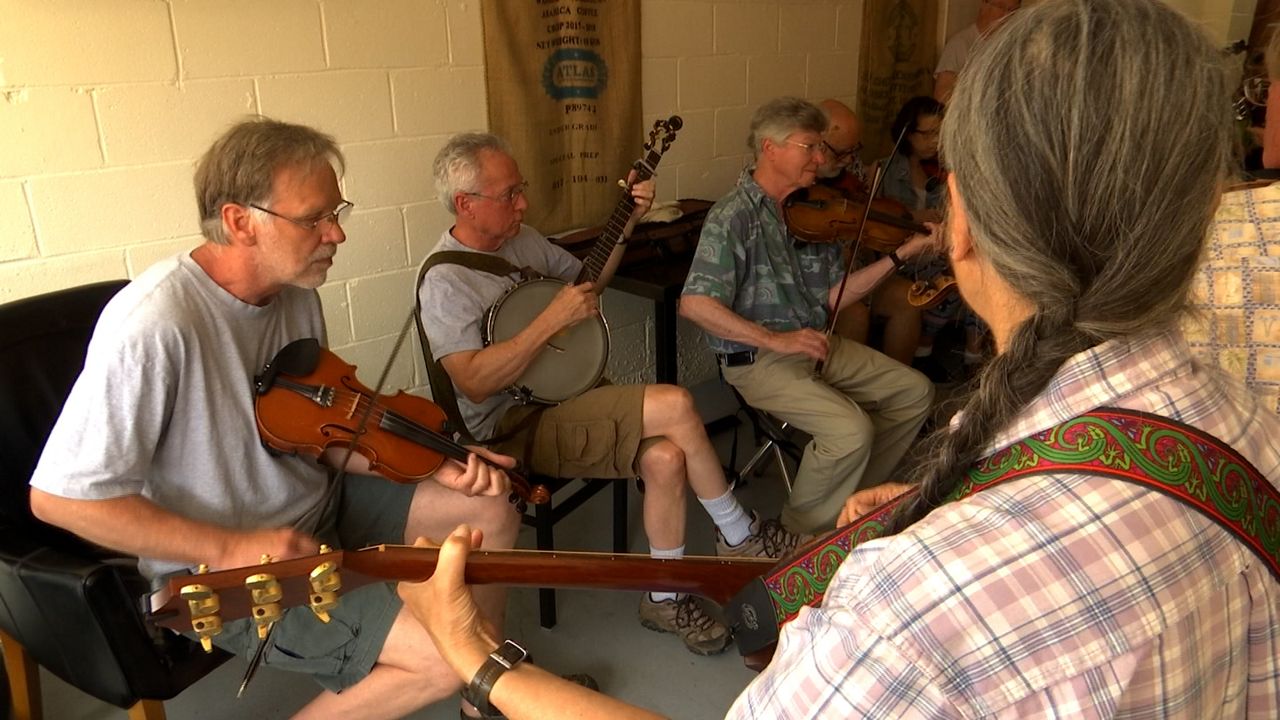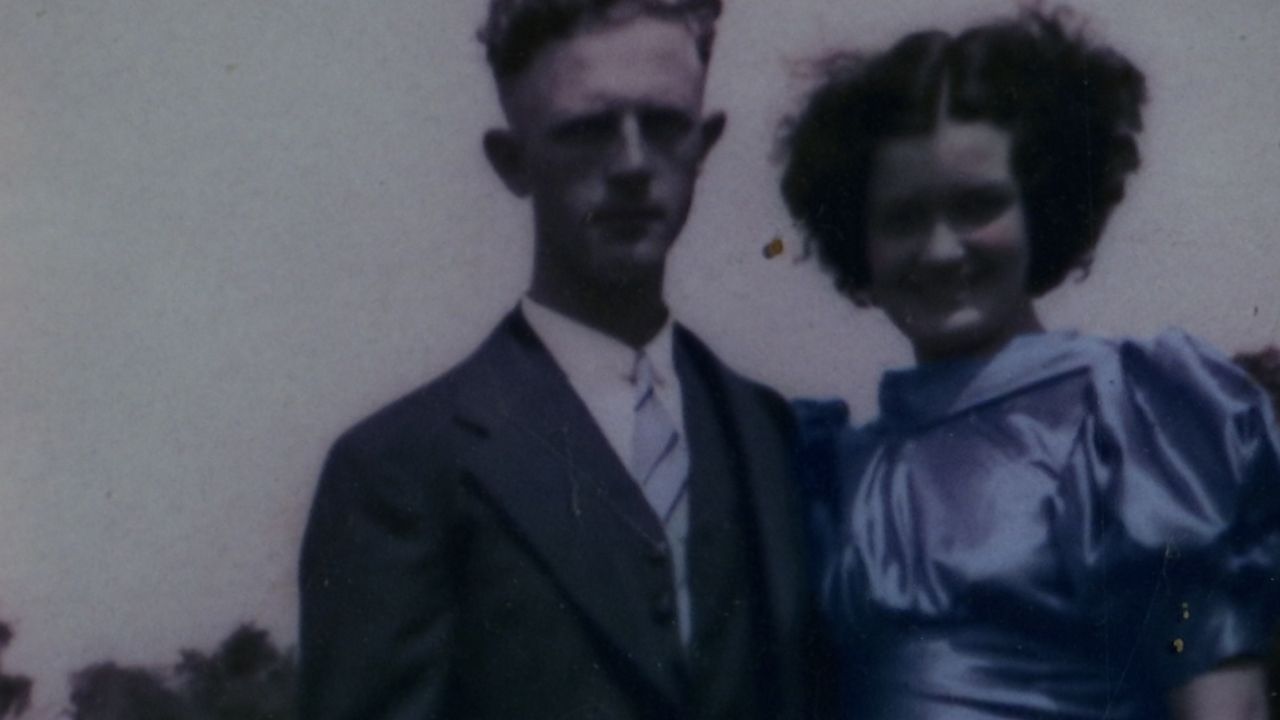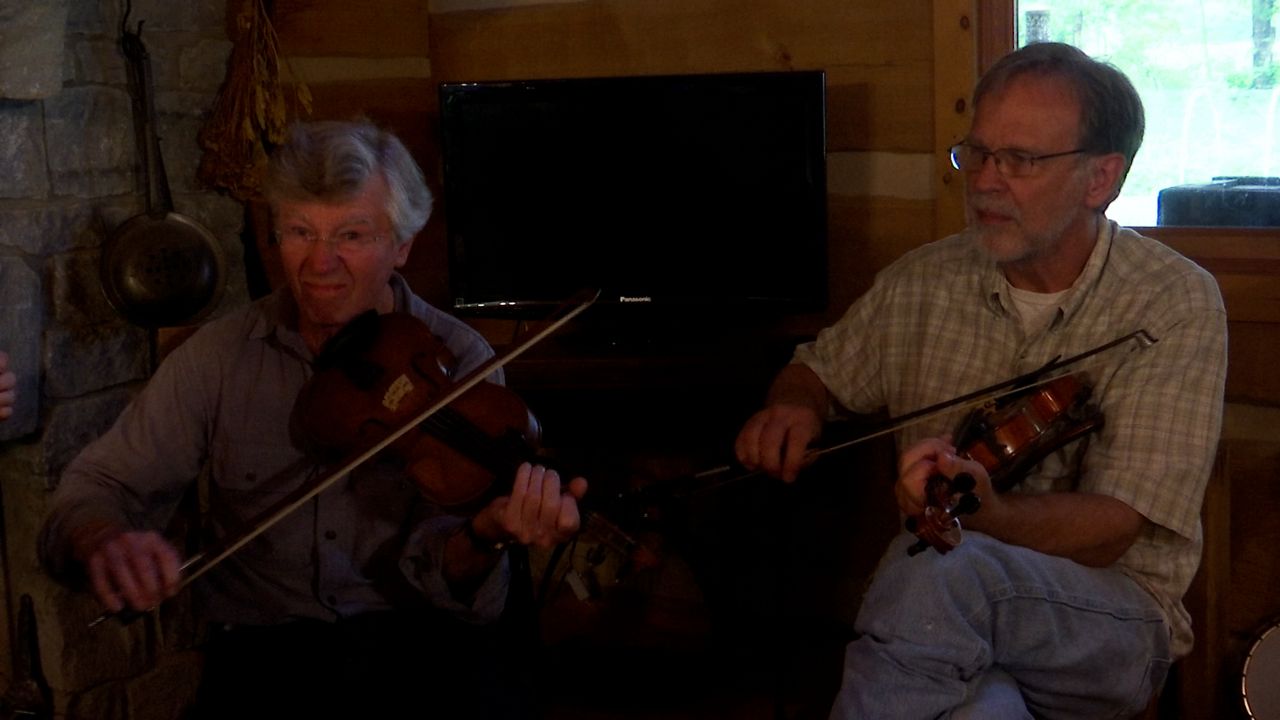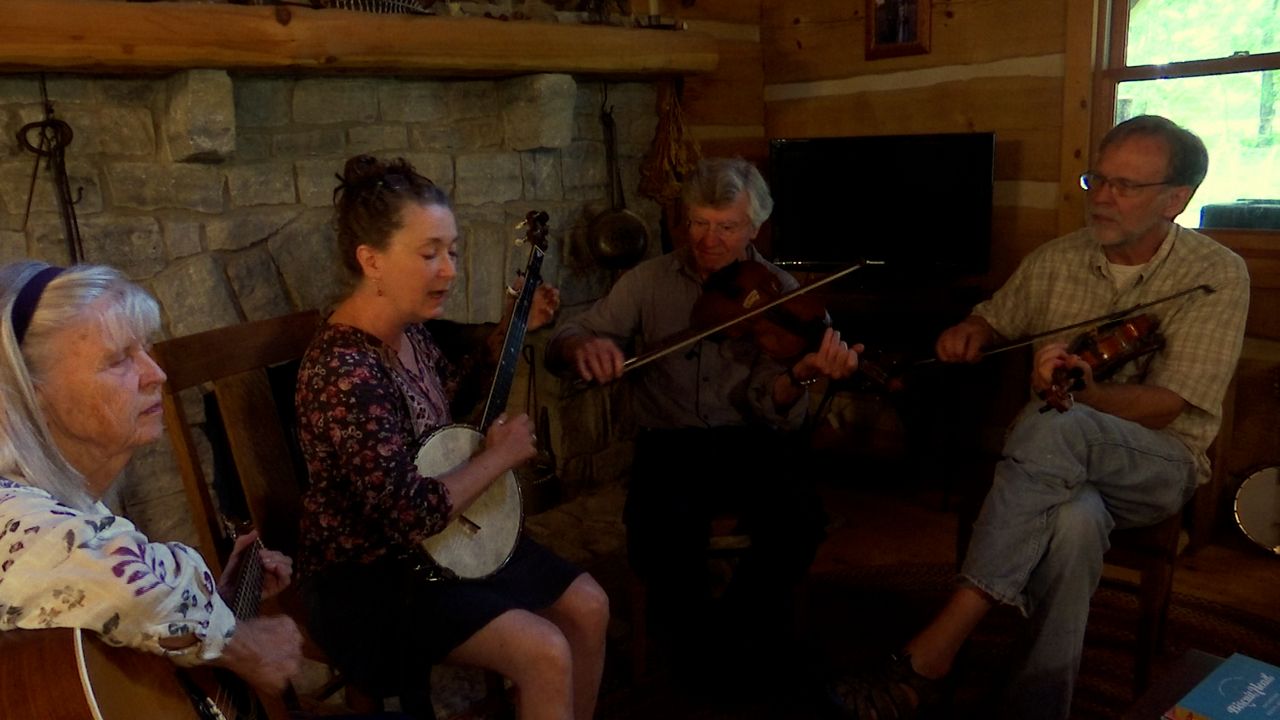CINCINNATI — Every Sunday, in a crowded corner of an O'Bryonville coffee shop, you’ll hear a cacophony of sound. Banjos tuning, guitars strumming, fingers plucking away at violin strings, until one fiddle takes charge.
The bow dancing rhythmically across the strings, droning on one note until suddenly breaking into a melody. Then another violin picks up the tune, and another, then the banjos double the melody and guitars keep the rhythm. The entire room erupts into song, without a sheet of music in sight.

These musicians try to gather weekly for what they call the “Old Time Jam,” a celebration of traditional music from Appalachia. While the players have all sorts of backgrounds, many can trace their roots to those mountains and for them those melodies mean even more.
Dale Farmer is one of them. He said he dabbled in old-time music since he found his grandfather’s banjo in his closet at age 13.
“He started telling me stories of growing up in the mountains of Kentucky and playing,” he said.
His family was a part of the Appalachian migration in the mid-20th century. In search of opportunity and a better life, his family, like thousands of other Appalachian people, left their farm and came to the Cincinnati area to work in the auto industry.

At the time, music was a part of their social life. It was a form of communication and recreation, as families in Appalachia would come together, play music and dance. During the migration, music was one of the few things families were able to bring with them and one of the aspects of their culture they could hold onto.
Hostility and prejudice met many of the migrants in their new homes. They were considered backwards, poor and uneducated. Many migrants worked hard to lose their accents because fo the stigma.
“There was a lot of resentment, a lot of hard feelings just like any migrants,” Farmer said.
Still, they got together to play music and growing up, Farmer couldn’t get the tunes out of his head. He looked for opportunities to play and hear that music, eventually buying his grandfather a fiddle from a flea market to inspire him to pick it up again.
“He held it just like this, and choked way up on the bow and started playing,” he said, holding the violin to his chest with his hand close to the missile of the bow.
It’s a fairly unique posture for violinists. The classical playing position puts the instrument under the player’s chin and allows the wrist more flexibility to move up and down the neck, but Farmer said this position is well-suited for old-time music. It allows the player to stay in one position and comfortably move their fingers quickly in the repetitive patterns that characterize the music.
“That’s the way a lot of the old-timers in Appalachia played it,” he said.

Many Appalachian musicians had no formal training. They learned music by ear, and taught it that way, adapting their style to best suit the melodies they play. That’s why Farmer said he prefers grandpa’s way.
“When I play the fiddle and hold it like this I can feel him in the notes,” he said.
As Farmer continued to explore the music, he found generations of Ohioans with a love for his family’s traditional sound. Warren and Judy Waldron, musicians from Cleveland who spent much of their life studying the music, helped him hone his craft and along with Amy Cogan Clay, they formed their own group, the Jericho Old-Time Band.
“When the music starts, we all become family and we’re all connected in such a deep way that’s hard to be connected like that in any other way,” he said.
The more he played, the more Ohioans Farmer found with similar stories, which inspired him to share it to a wide audience. In 2019, he premiered “Mountain Minor,” a semi-autobiographical feature film that follows Farmer’s Family story and the legacy of old time music in southwest Ohio.
Many of the actors in the film are old time musicians Farmer met through Cincinnati’s weekly jams.
During the pandemic, the old time group took a brief hiatus, before returning for outdoor jams at area parks. The jams only recently returned to play for indoor crowds in late spring.
“Sometimes we’ll have 12-14 people, sometimes it’s six or seven all depends on what’s going on in town tonight,” Farmer said.

It’s a slow return to form but Farmer said nothing can compare to seeing musicians of such diverse backgrounds and ages embracing the music of his roots. Whenever new people stop by, he considers it an educational opportunity.
“It’s good for me to see young people embracing their heritage and looking up their family histories and trying to learn more about where we came from,” he said.
Within this music, Farmer sees an often overlooked intelligence and proud tradition. These folk melodies eventually evolved into bluegrass and country music but he believes old time music still holds an important place in Ohio’s music scene.
Every Sunday, when his fellow players come together he’s proven right.



